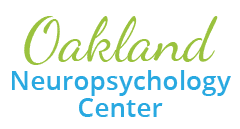Genetic/Neurological Conditions Testing Children and Teens
Understanding Neurological & Genetic Disorders Across the Lifespan
Neurological and genetic disorders can affect individuals at any age—often influencing how they learn, think, and interact with the world. While some conditions are diagnosed at birth or in early childhood, others may not be recognized until school-age years or even adulthood. Regardless of when they are identified, many of these conditions are associated with learning difficulties that can impact daily functioning, academic performance, and overall quality of life.
What Are Neurological Disorders?
Neurological disorders involve the brain, spinal cord, or nervous system, and may result from genetic factors, structural abnormalities, or acquired injuries (such as concussions or other trauma). Common neurological conditions that may impact learning include:
- Seizure disorders (e.g., epilepsy)
- Tourette syndrome
- Hydrocephalus
- Cerebral palsy
- Intellectual disabilities
- Brain malformations
- Concussions and traumatic brain injuries
These conditions can affect cognitive abilities, attention, memory, motor skills, and behavior—often requiring a thoughtful, individualized approach to learning and support.
What Are Genetic Disorders?
Genetic disorders are caused by changes in an individual’s DNA and may be inherited or occur spontaneously. They often affect brain development and are commonly associated with distinct learning and cognitive profiles. Some well-known genetic conditions linked to learning challenges include:
- Down syndrome
- Fragile X syndrome
- Williams syndrome
- Turner syndrome
- Velocardiofacial syndrome (VCFS/22q11.2 deletion)
- Prader-Willi and Angelman syndromes
Each of these conditions presents with its own strengths and challenges, and early identification can make a significant difference in planning the right educational and support strategies.
How We Can Help
We provide comprehensive neuropsychological and developmental evaluations to help individuals—and their families—better understand how these disorders may be affecting learning and behavior. We assess cognitive functioning, academic skills, language, attention, executive functioning, and emotional regulation to build a full picture of each person’s unique profile.
We then offer clear, personalized recommendations for educational accommodations, therapies, and interventions designed to promote success—whether in the classroom, the workplace, or daily life. We are here to provide clarity, support, and a plan to move forward with confidence.


